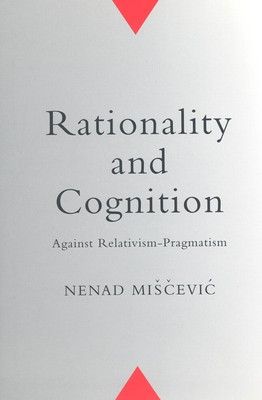
- We will send in 10–14 business days.
- Author: Nenad Mis̆c̆ević
- Publisher: University of Toronto Press
- Year: 1900
- Pages: 344
- ISBN-10: 1442657707
- ISBN-13: 9781442657700
- Format: 15.2 x 22.9 x 1.9 cm, softcover
- Language: English
- SAVE -10% with code: EXTRA
Reviews
Description
Cognitive science has posed some radical challenges to philosophy in recent years, particularly in the study of the cognitive activities and capacities of individuals. Many philosophers have taken up the challenge, and one result has been the emergence of a radical new wave of relativism, one that assaults the credibility of rationalist views. In this book Nenad Mis̆c̆ević defends naturalistic rationalism against these recent relativist attacks.
The book begins with an excellent introduction to cognitive science, and goes on to create a searching defence of human rationality and of a traditional role for truth in epistemology. Mis̆c̆ević presents a critical scrutiny of the relativism championed by Stephen Stich and Paul Churchland and their followers, showing that it not only exaggerates the subversive impact of science, but relies on its links with naturalism for much of its crediblity. His careful dissection of relativist arguments establishes the main outlines of a positive rationalistic picture that is both original and convincing.
EXTRA 10 % discount with code: EXTRA
The promotion ends in 11d.12:22:50
The discount code is valid when purchasing from 10 €. Discounts do not stack.
- Author: Nenad Mis̆c̆ević
- Publisher: University of Toronto Press
- Year: 1900
- Pages: 344
- ISBN-10: 1442657707
- ISBN-13: 9781442657700
- Format: 15.2 x 22.9 x 1.9 cm, softcover
- Language: English English
Cognitive science has posed some radical challenges to philosophy in recent years, particularly in the study of the cognitive activities and capacities of individuals. Many philosophers have taken up the challenge, and one result has been the emergence of a radical new wave of relativism, one that assaults the credibility of rationalist views. In this book Nenad Mis̆c̆ević defends naturalistic rationalism against these recent relativist attacks.
The book begins with an excellent introduction to cognitive science, and goes on to create a searching defence of human rationality and of a traditional role for truth in epistemology. Mis̆c̆ević presents a critical scrutiny of the relativism championed by Stephen Stich and Paul Churchland and their followers, showing that it not only exaggerates the subversive impact of science, but relies on its links with naturalism for much of its crediblity. His careful dissection of relativist arguments establishes the main outlines of a positive rationalistic picture that is both original and convincing.


Reviews